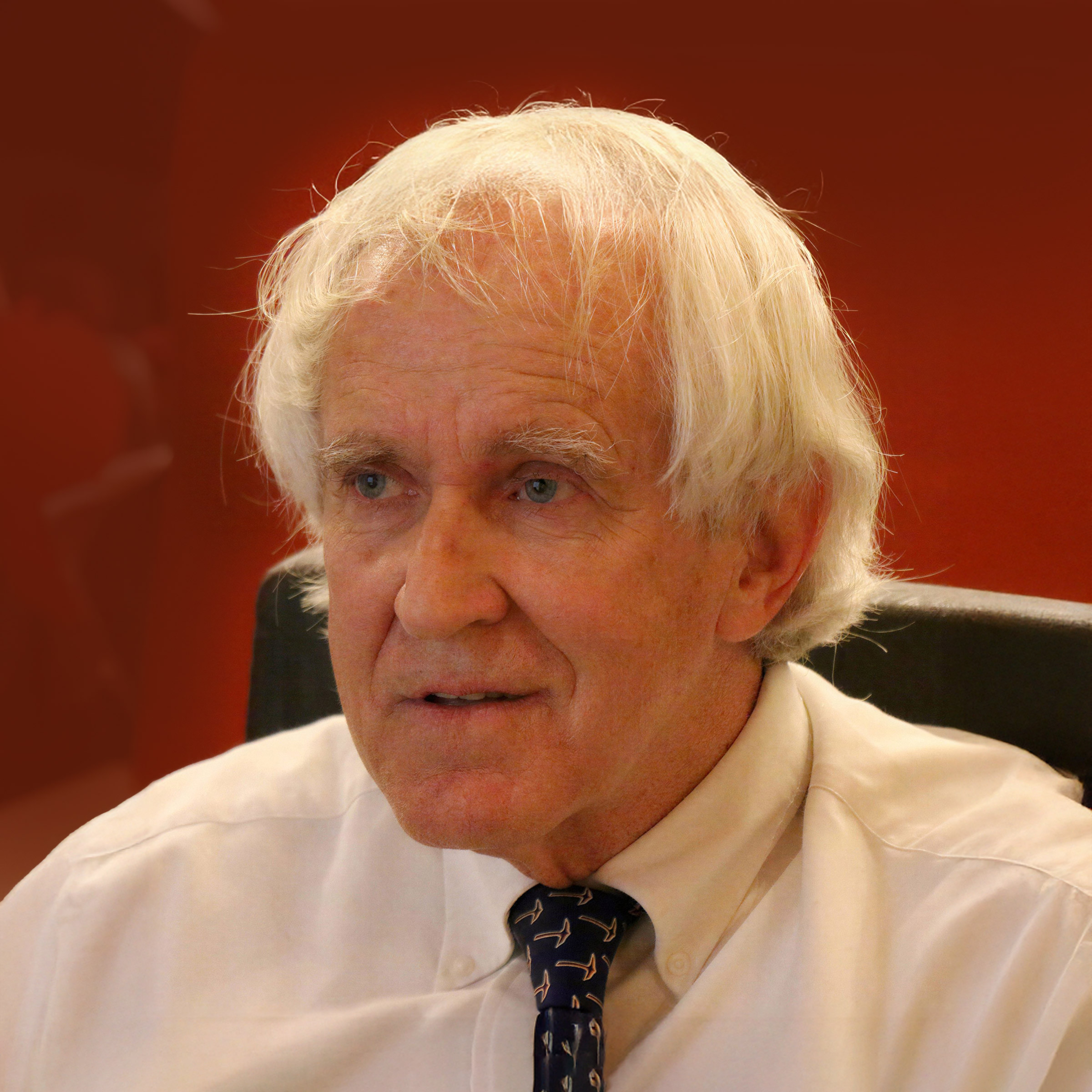Editor’s note: We are delighted to present this excerpt from Chapter 1 of Neil Thomas’s new book, False Messiah: Darwinism as the God That Failed (Discovery Institute Press).
For the first decades of Queen Victoria’s reign, any would-be scientific law dependent on the postulation of chance would have condemned itself as being a contradiction in terms. For chance, by definition, is not a causal agency nor does it adhere to the predictability and regularity of a natural law.
It’s true that Darwin likely conceived of the chance element of his theory not as randomness at an ontological level, as for instance randomness conceived of in some formulations of quantum mechanics, but instead as random only in an epistemological sense, as referring to events whose causal chains are unknown and perhaps indeterminable, or at least not describable by current natural law, as well as not arising for the sake of the survival and reproductive needs of the organism. As Darwin explained in the Origin, “I have hitherto sometimes spoken as if the variations — so common and multiform in organic beings under domestication, and in a lesser degree in those in a state of nature — had been due to chance. This, of course, is a wholly incorrect expression, but it serves to acknowledge plainly our ignorance of the cause of each particular variation.”1
But Is the Term Wholly Incorrect?
Think of a rock dislodged by happenstance, tumbling down a mountain, and coming to rest in some particular spot. Yes, if one were all-knowing, one could provide a detailed, mathematical description of the natural forces accounting for the rock’s journey — its every roll and skip, its particular rate of acceleration, its particular orientation when it came to a stop, and so on. But as this far outstrips our capacity to manage, we remain ignorant of its full causal story. And yet, even aware of that ignorance, we can hardly be said to abuse the language when we describe the particulars of any such haphazard journey down the mountain as random or chance-like, even recognizing that such natural forces as gravity, inertia, and friction played their parts in the rock’s precise journey. In this regard, Darwin has done little more than state the obvious as regards what he means by chance. His attempt to distance himself from the conventional meaning of the term “chance” calls to mind the famous line from Shakespeare: “Methinks the lady doth protest too much.” Darwin, it seems, was acutely aware that the prominent role of chance in his chance/selection theory was not well calculated to impress his Victorian colleagues.
Some modern, popular-level accounts of Darwin’s ideas give the impression that with his theory of evolution a Great Discovery had been made whose self-evident brilliance was such that every educated person not blinded by religious commitments readily assented to it. This reading of Victorian history, however, is not supported by the evidence. The common opinion of the leading men of science in the first half of the 19th century tended towards a form of deism, according to which divine law initiated life on earth. More broadly, educated opinion had, by the 1830s, become comfortable with the notion of a remote God having acted indirectly through natural laws of His own design.
“The Law of Higgledy-Pigglety”
The result was that the predisposition in the natural sciences was in favor of natural laws and against the invocation of either miracle or chance. And so it was that Darwin’s unheralded announcement of a process in which chance variations introduced all the creative steps leading to the whole panoply of terrestrial life struck many in Victorian England as counterintuitive at best. The idea that random variations (today understood as genetic mutations) lay at the root of a process that gave rise to the most intricate of designs was sharply opposed by eminent scientific figures such as Darwin’s accomplished Cambridge tutor William Whewell and leading British scientist Sir John Herschel, the latter of whom reportedly described Darwin’s chance-dependent theory as “the law of higgledy-pigglety.”2
They were far from alone in their negative assessment. Prior to the Origin’s publication, Whitwell Elwin, distinguished editor of the Quarterly Review, was selected by Darwin’s publishing house to vet his manuscript in advance of possible publication. Elwin, not mincing words, memorably advised against publication on the grounds that he deemed the work a wild and foolish piece of imagination whose author would have been better advised to confine himself to the subject of pigeons.
Geologist, physiologist, and mathematician Samuel Haughton, a professor at the University of Dublin, sounded a similar warning, albeit in weightier tones. Haughton had become privy to the pre-publication preview of the Origin in July 1858 at a meeting of the Linnean Society convened in London by Charles Lyell and Joseph Hooker.3 This was the occasion when, in the interests of gentlemanly fairness, the near-identical evolutionary views of Darwin and Wallace were given equal time.
In his autobiography Darwin makes special mention of Haughton, candidly reporting the Irish academic’s verdict as having been that “all that was new in there was false, and what was true was old.”4 This was in fact a painfully honest representation of remarks Haughton really did make to members of the Geological Society of Dublin on February 9, 1859,5 and which he developed in an anonymous article written for the 1860 edition of The Natural History Review.6 Haughton summed up his verdict on the papers by Darwin and Wallace (read out in absentia in both cases by Sir Charles Lyell) in unsparing terms: “There is no folly that human fancy can devise, when truth has ceased to be of primary importance, and right reason and sound logic have been discarded, that has not been produced, and preached as a new revelation.”7
Post Hoc Ergo Propter Hoc
Haughton felt that Darwin had fallen for the logical post hoc ergo propter hoc fallacy, that is, as Haughton phrased it, the delusion that mere succession necessarily implied causation.8 Zoologist St. George Mivart, while later to the show, was also to oppose the inference that similarities in physiological structure necessarily implied a phylogenetic relationship (a thesis Darwin would double down on in his second major work, The Descent of Man9). In his 1871 book On the Genesis of Species, Mivart argued that such an inference involved circular reasoning: Similarities of bodily structure were simply assumed to be indications of common descent without concrete evidence. He felt that this was a circumstantial and superficial inference without clinching empirical support or even the prospect of confirmatory evidence emerging in the future.10 Later in the same work Mivart dismissed Darwin’s theory as depending on “mere minute, fortuitous variations.”11
Other reviewers of the Origin also remained unconvinced by Darwin’s claims.12 The French Academy of Sciences was especially pointed, declining to elect Darwin to its zoological section on the grounds that his case for evolution was “not science, but a mass of assertions and absolutely gratuitous hypotheses, often evidently fallacious. This kind of publication and these theories are a bad example which a body that respects itself cannot encourage.”13
Such, by and large, was the kind of professional response the Origin received. Mivart and Haughton, in company with members of the wider Victorian public,14 persisted in regarding poor chance, with or without the aid of natural selection, as unequal to the task of bringing such a grand and exquisitely crafted symphonic whole as the terrestrial biosphere into existence without any agency to compose and direct it.
“A Deliberate Campaign”
The pre-publication slights and critiques Darwin received had the effect of putting him on the back foot. How could he get an idea so offensive to accepted scientific tenets embraced by both the scientific community and the wider public? What was his solution? Curtis Johnson took up this question through detailed researches into Darwin’s private notebooks, letters, and the multiple editions of the Origin. In his 2015 book Darwin’s Dice, Johnson concludes that Darwin increasingly de-emphasized the idea of chance as a significant causal factor in evolution, especially after the first edition of the Origin. By the sixth edition, in response to criticisms received, the theory had been reframed to emphasize the guiding hand of natural selection, making variation seem less random and more directed.15
Darwin’s private writings reveal that for later, revised versions of the Origin, he massaged his material as part of a sustained effort to get more of his readership to swallow the suspect pill of chance. This massaging is most apparent in the sixth and final edition. By then, forewarned and forearmed by Mivart’s verbal squibs about mere fortuity, Darwin had, according to Johnson, “adopted a variety of rhetorical strategies that added up to a deliberate campaign to retain chance as a central element while making it appear to most readers that he did not.”16
In other words, Darwin became steadily convinced of the necessity to insinuate his dangerous idea into the consciousness of his peers by such means of verbal dexterity as he could devise, contriving to bypass his peers’ critical guard in a campaign of trompe-l’oeil or, in plain English, of pulling the wool over people’s eyes.
Notes
- Darwin, On the Origin of Species, 131.
- Quoted by Charles Darwin to Charles Lyell, December 10, 1859, Darwin Correspondence Project, Letter no. 2575, University of Cambridge, https://www.darwinproject.ac.uk/letter/?docId=letters/DCP-LETT-2575.xml.
- Charles Darwin and Alfred Russel Wallace, “On the Tendency of Species to Form Varieties; and on the Perpetuation of Varieties and Species by Natural Means of Selection,” Journal of the Proceedings of the Linnean Society, August 1858 (papers read out on July 1, 1858). See the accompanying letter of Charles Lyell to the Linnean Society, June 30, 1958, Darwin Correspondence Project, Letter no. 2299, University of Cambridge, https://www.darwinproject.ac.uk/letter?docId=letters/DCP-LETT-2299.xml.
- Charles Darwin, The Autobiography of Charles Darwin, ed. Nora Barlow (New York: Norton, 1958), 122.
- Samuel Haughton put the matter thus: “This speculation of Messrs. Darwin and Wallace would not be worthy of notice, were it not for the weight of authority of the names under whose auspices it has been brought forward [Lyell and Hooker]. If it means what it says, it is a truism; if it means anything more, it is contrary to fact.” Annual Address Delivered Before The Geological Society of Dublin, February 8, 1859 (Dublin: M. H. Gill, 1859), 18, https://play.google.com/books/reader?id=dq4oAQAAMAAJ&pg=GBS.PA18&hl=en.
- Samuel Haughton, “Biogenesis” [review of Origin by Charles Darwin], Natural History Review 7 (1860): 23–32, http://darwin-online.org.uk/converted/pdf/1860_Review_Origin_Biogenesis_Haughton_A1128.pdf.
- Haughton, “Biogenesis.”
- Haughton, “Biogenesis.”
- Charles Darwin, The Descent of Man and Selection in Relation to Sex [1871], eds. James Moore and Adrian Desmond (London: Penguin, 2004).
- St. George Jackson Mivart, On the Genesis of Species, 2nd ed. (New York: Macmillan & Co., 1871); see for example 145–153.
- Mivart, On the Genesis of Species, 255. The work was framed as a studied response to Darwin’s Origin.
- David L. Hull, Darwin and his Critics: The Reception of Darwin’s Theory of Evolution by the Scientific Community (Chicago: Chicago University Press, 1973) reproduces many of the more important reviews published within a decade of the appearance of the Origin.
- See W. J. Dempster, Evolutionary Concepts in the Nineteenth Century: Natural Selection and Patrick Matthew (Edinburgh, UK: Pentland Press, 1996), 71.
- See Alvar Ellegard, Darwin and the General Reader: The Reception of Darwin’s Theory of Evolution in the British Periodical Press 1859–1872 (Gothenburg, Sweden: Elanders, 1958).
- Curtis Johnson, Darwin’s Dice: The Idea of Chance in the Thought of Charles Darwin (Oxford, UK: Oxford University Press, 2015), 89–114 and passim.
- Johnson, Darwin’s Dice, xvii.









































